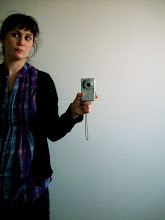“For the nineteenth century, childhood is better understood as a status or idea associated with innocence and dependency than as a specific development or biological period” (Sanchez-Eppler xxi). This idea presented in Sanchez-Eppler's introduction to Dependent States: The Child's Part in Nineteenth-Century American Culture that childhood isn’t an age thing so much as a maturity thing is one of the main factors that sets children’s literature of that time period apart from children’s literature in any other era. The fact that a twenty year old could theoretically be considered a child if his maturity level was that of a ten year old dramatically effects the way that you would present literature to them or about them.
For example, a main theory seen through out childhood literature is the idea that “they were written to teach, and specifically, to teach morality” (MacLeod 89). Although people of all ages can certainly take something away from a speech about morality, the effect is greater on one who is still testing those boundaries, a.k.a, people with lower maturity levels. When we’re younger, we’re more likely to grow and adapt to changes going on around us then when we’re old, therefore why not imprint the message on as many young minded people as you can to help shape the person you want them to become.
This idea of using children’s literature to mold their future leads me to my second theory that “children are incapable of defining their own terms and grounds of power and meaning” (Sanchez-Eppler xviii) and therefore we [be the older, wiser, more mature ones] must spell that out for them. How is it that we learn what’s right or wrong? Someone tells us. Someone is there to hold our hands and explain the world and how we should act in it in their eyes. Thus, it’s impossible to expect a child to know their own meaning and we must explain to them through stories and morals what their meaning truly is.
Another theory that stems from the idea that someone is teaching us meaning and power is the fact that many of these stories were told at home and therefore “if a child was to acquire firm moral principles, he must do so early, in the brief years before he left home” (MacLeod 96). Parents are essentially growing their own kids in the privacy of their own homes with no one there to guide them except perhaps the additional relative or two. How is it then that the basic morals are almost universal through the community? Society, yes, but what has an impact on society? Literature. We’re essentially giving them “the principles which wisdom and truth sanction are not those which govern society” (96) but which we desperately want them to have before they leave the home and join society as individuals.
A further look into children’s literature of the time leads me to the contradiction that although literature says children were supposed to stay in the home and obey their parents, at the time, children were in fact employed through out the factories. This leads to the theory that “fiction [was written] to counter the growing materialism and the rampant competitiveness of American society”(MacLeod 96) to turn children away from the factories [growing materialism] and towards a brighter, more moral light, such as education.
The last theory that I wish to discuss is the question about “whether [literature is there] to prepare children for adult worries and responsibilities or to protect and cherish them in a freer world of imagination and play” (Sanchez-Eppler xviii). The children are our future, we’re trying to teach them morals in the home, and mold them into the positive figures we want them to be but are telling them these stories because we want them ‘hurry up and grow up already’ or because we want them to enjoy the world around them while they can? The phrase, “youth is wasted on the young” isn’t a new idea, but were we seeing this theory as early as in nineteenth century children’s literature? The world will never know…

No comments:
Post a Comment